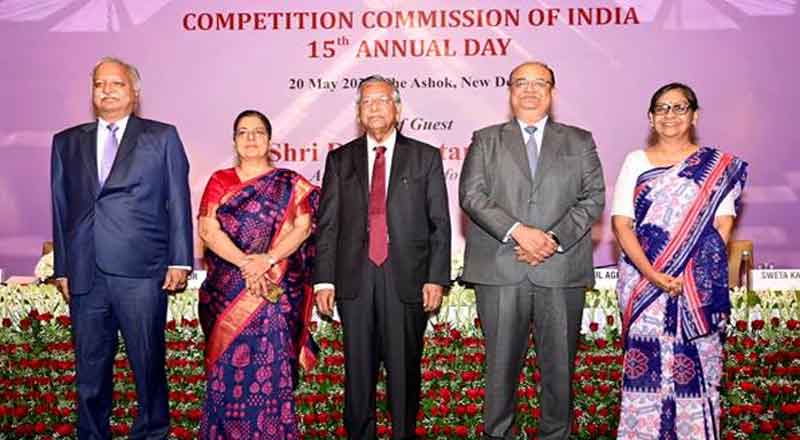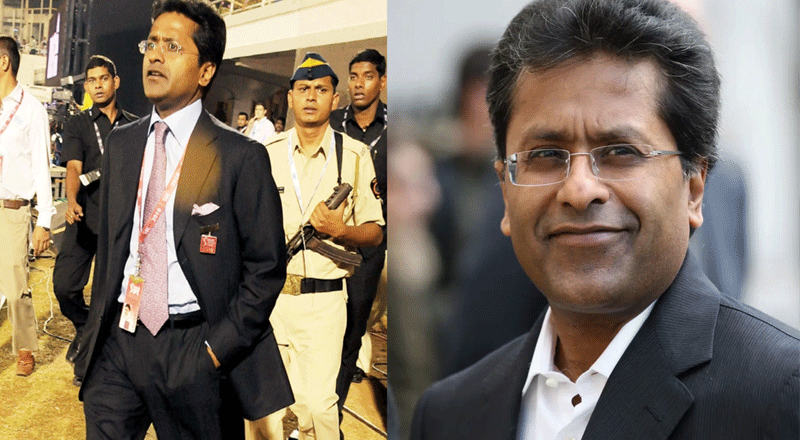The Attorney General for India, Shri R. Venkataramani, delivered the special address at the 15th Annual Day commemoration of the Competition Commission of India (CCI) as Chief Guest, in New Delhi, today.
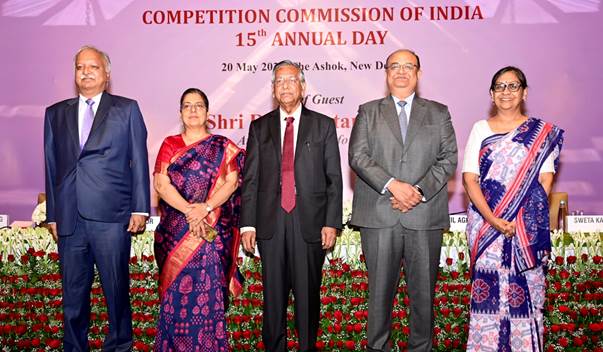
In his address, Shri Venkataramani spoke about how the need for regulation of competition has travelled domains of prevention of unfairness in competition, to price determination and consumer welfare, and entering the age of common good as the determining factor.
Referring to the quote of Paul Samuelson that the markets can work but only with government created guardrails, Shri Venkataramani said such guardrails include competition regulation. The need is for coining new ideas of coexistence between the engine of free market and the umbrella of social benefit, Shri Venkataramani highlighted. The task of navigation between incentives and free riding of market ideas, will be a distinct legal innovation, distinct from other regulatory thoughts, he added.
Shri Venkataramani touched upon a few broad aspects such as the international convergence of competition laws and the take offs there from; the challenges to regulatory laws in general; the task of redistribution of economic power between consumers and suppliers and suppliers interse; the newly-emerging sustainability considerations and competition policy, as the business of sustainability will govern the sustainability of business, and new challenges in the light of digitalisation.
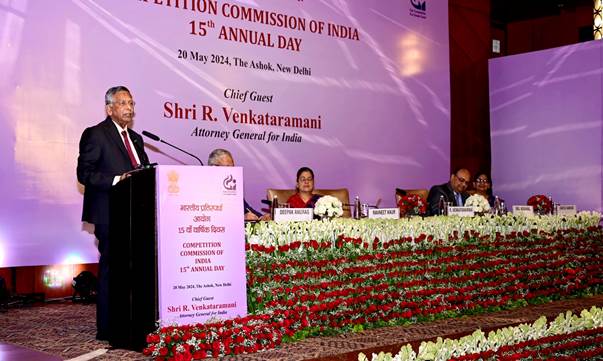
With reference to digital markets, Shri Venkataramani said that the ongoing debate is one of ex-post action (investigation and sanctions) and the possibility of false negatives on the one hand versus an ex-ante action (bans and prohibitive rules) and the possibility of false positives on the other. The debate is also of casting a wide regulatory net, agnostic of the activity involved versus having more market specific regulations. To aid this, tools such as behavioural economics, that provide insight into human preferences, are useful, Shri Venkataramani added.
Shri Venkataramani further mentioned that given the existing framework of our competition law and the lessons learnt and to be learnt will need placing our debates a little beyond our domestic frontiers and at the same time to pursue our specific national matrices. Just as human innovations are dynamic so also market manoeuvres, the challenge is to have a basket of relevant empowering and synthesising principles.
Referring to the growing importance of privacy and data in the competition discourse, Shri Venkataramani said that establishing the contours of privacy from a competition perspective is important and suggested that it is imperative that a regulator always be keeping up with the times. Shri Venkataramani added that having detailed guidelines based on studies of the Indian market, will give the market players useful signposts as to the likely proscribed conduct. This would foster greater certainty, would empower smaller players, and caution larger ones on practices which are harmful to competition, he said.
In her welcome address, Smt. Ravneet Kaur, Chairperson, CCI, reflected upon the journey of the Competition Commission of India over the last 15 years of its enforcement activities and highlighted the efforts to protect consumer interests and spur innovation and efficiency among businesses, thereby contributing to the overall economic welfare of our nation.
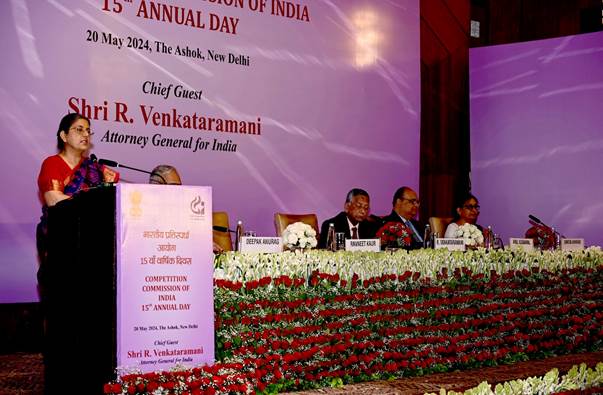
The Chairperson highlighted that the CCI has taken several initiatives to enhance transparency, improve regulatory processes, and make its operations more accessible to the stakeholders. In the year gone by, CCI was engaged in preparing the regulatory framework under the new Competition Amendment Act, 2023. The introduction of Settlements & Commitments, Deal Value Threshold for notifying mergers and acquisitions, explicit introduction of Hub & Spoke Cartels in the statute book and the innovative concept of Leniency Plus, are all designed to address the complexities of modern markets and business practices, she added.
Smt. Kaur noted that the digital economy offers immense opportunities for innovation, growth, and consumer benefit but has challenged traditional competition law frameworks worldwide. Addressing these challenges requires regulatory agility, development of new analytical tools, and possibly, novel regulatory frameworks specifically tailored to the digital context. To ensure that digital markets remain competitive and fair, we must confront these challenges head-on, with a commitment to adapt our policies, enforcement strategies, and legal frameworks to the realities of the digital age.
In this context, the Chairperson mentioned that CCI is in the process of launching a market study on artificial intelligence (AI) as a knowledge building exercise to develop an in-depth understanding of the emerging competition dynamics in the development ecosystems of AI systems and implications of AI applications for competition, efficiency and innovation in key user industries.
Smt. Kaur added that in times to come, CCI will endeavor to be at the forefront to nurture competitive culture, focus on emerging areas of the digital economy, and ensure that competition law enforcement evolves in tandem with these innovations, safeguarding the interests of consumers and ensuring fair play.
Sh. Anil Agarwal, Member, CCI, proposed the Vote of Thanks. He thanked the Attorney General for India for gracing this occasion and sharing his vision for the CCI. Shri Deepak Anurag and Ms Sweta Kakkad, Members of CCI were also present on the occasion.
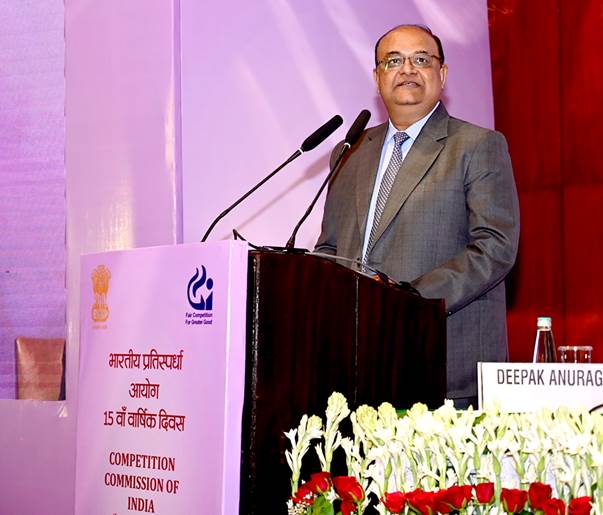
The event was attended by a large number of dignitaries from the government, regulatory bodies, PSUs, industry, academia, chambers of commerce, and the legal fraternity.


